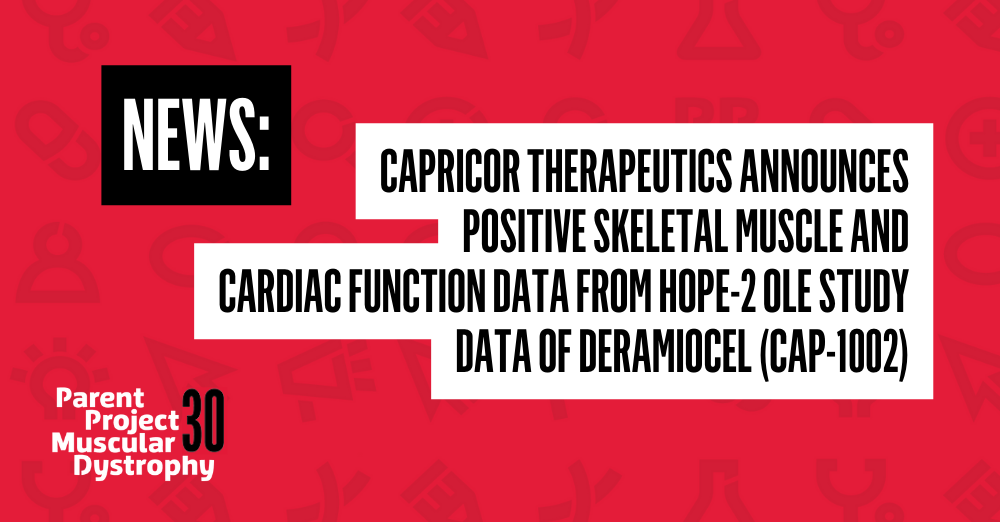
Capricor Therapeutics today announced additional positive 3-year safety and efficacy results from the company’s ongoing HOPE-2 open label extension (OLE) study of deramiocel (CAP-1002) for the treatment of Duchenne. CAP-1002 is the company’s novel cell therapy.
Data from the HOPE-2 OLE study demonstrated improvements in multiple cardiac measures, including left ventricular ejection fraction (LVEF), as well as indexed volumes (left ventricular end systolic volume (LVESV) and left ventricular end diastolic volume (LVEDV)). In addition, greater improvements in cardiac function were observed in those patients that had higher ejection fractions (> 45%) at the beginning of the HOPE-2 randomized trial. Patients also showed a statistically significant benefit in the PUL v2.0 total score when compared to an external comparator dataset of similar Duchenne patients. Capricor highlighted that the HOPE-2 OLE study continues to show a favorable safety profile for long-term treatment with deramiocel.
Capricor has indicated that the company plans to discuss with the FDA options to expedite their Biologics License Application (BLA) filing. According to Capricor, it “continues to work closely with FDA with the goal of bringing deramiocel to patients as quickly as possible.”
PPMD is pleased to learn this news from Capricor and we look forward to further updates on deramiocel’s progress. We are grateful to all the families who have participated in the HOPE-2 study and are optimistic about deramiocel’s potential as a treatment for Duchenne.
Capricor will be providing an overview of this data during the Research Row: Approaches to Alter Progression session at PPMD’s 30th Annual Conference on Saturday, June 29, in Orlando, Florida. Register to tune in virtually to the Conference, including this session, here.
Read Capricor’s press release here.



 by: Parent Project Muscular Dystrophy
by: Parent Project Muscular Dystrophy

